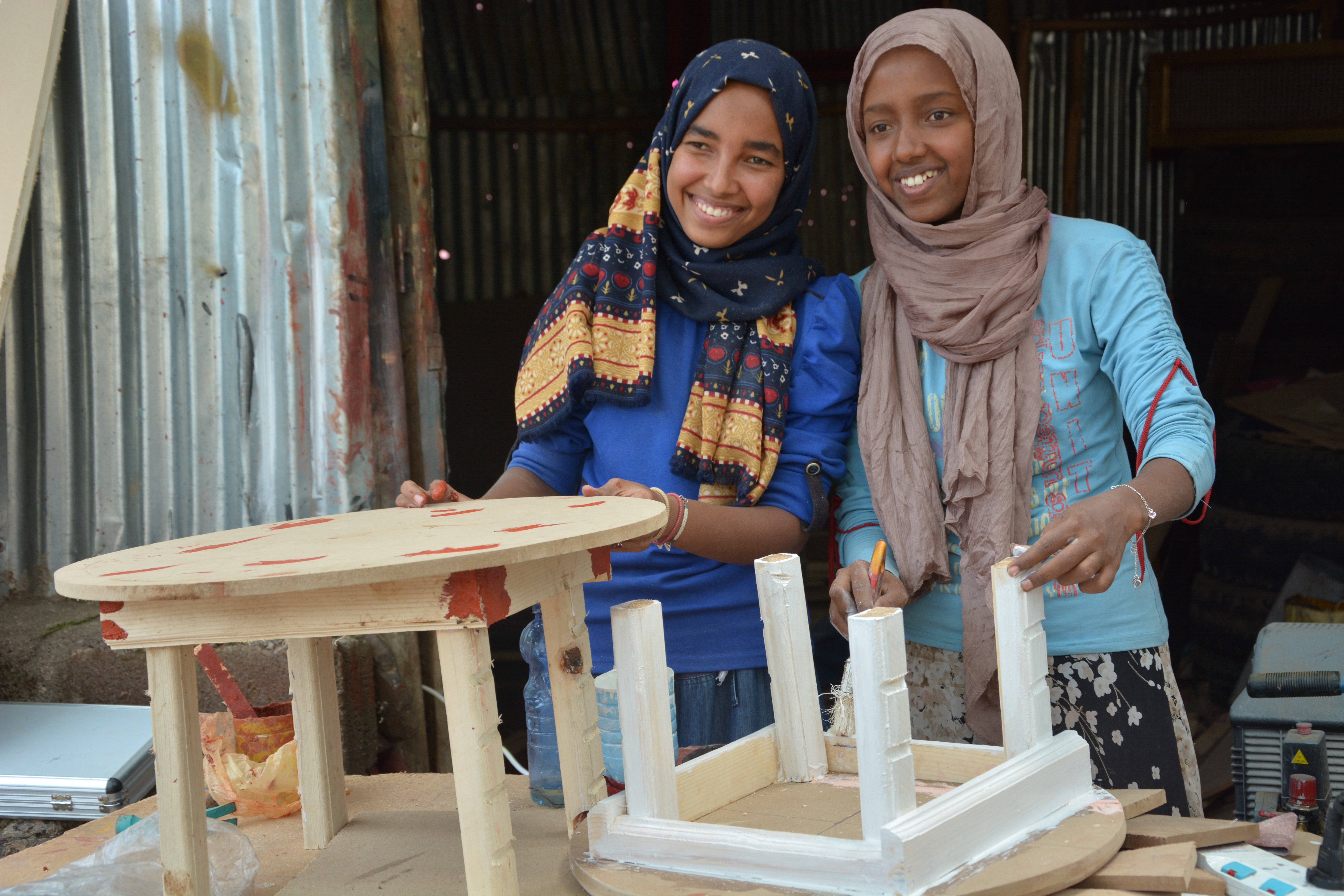
displaced and their host communities.
Credit: Chisako Fukuda/World Bank
The record-high number of forcibly displaced people today—refugees, asylum seekers and internally displaced persons (IDPs)—has underscored the need to improve the way the global community addresses these situations. The new global compact on refugees adopted at the UN General Assembly on December 17th will guide these efforts.
It is widely acknowledged that statistics are critical to inform our response, but until recently, there were no global standards. Lacking international guidance, different institutions produced data on forced displacement without due coordination or transparency. Terminology was inconsistent, making data incomparable. Statistical capacity varies between countries, and refugees and asylum seekers were not included in national censuses or regular migration and population statistics.
To address these challenges, the Expert Group on Refugee and Internally Displaced Persons Statistics (EGRIS) was established by the UN Statistical Commission (UNSC) in 2016. It aimed to improve the collection, compilation and dissemination of statistics on refugees, asylum seekers and IDPs, as well as to address the lack of consistent terminology and the difficulties of comparing statistics internationally. The work has been coordinated by a Steering Committee including representatives from Statistics Norway, Eurostat, UNHCR, the Turkish Statistical Institute and JIPS.
As a result, the International Recommendations on Refugee Statistics and the Technical Report on Statistics of IDPs were adopted at the 49th session of the UNSC in March 2018, and published last month. This has been an important focus of the Expert Group’s work so far, and the World Bank has been actively engaged in the process. Through several conferences, many on-line discussions and conference calls, we were privileged to work with colleagues from all over the world—national authorities and statistical offices, international statistical organizations and other technical experts.
The International Recommendations on Refugee Statistics (IRRS) will help countries and international organizations to harmonize and improve the overall quality of statistics on forcibly displaced populations. It addresses existing gaps and covers: (a) Legal framework and refugee definitions; (b) Defining refugees and refugee-related populations for the purpose of statistical measurement; (c) Measuring the number of refugees; (d) Measuring integration and the satisfaction of the immediate and ongoing needs of refugee and refugee related populations; and (e) Coordination and strengthening systems of refugee statistics. It helps to conceptualize and understand measurement of standardized statistical classifications of populations, useful data from surveys and censuses to measure the well-being of the populations, and the need for better coordination in statistical systems.
The Technical Report on Statistics of Internally Displaced Persons provides a stock-take of the current state of official IDP statistics as well as preliminary recommendations for improvement. Currently, data collection on IDPs differs from context to context. It is mostly for operational purposes, not for official statistics, and lacks standardization. The Technical Report encompasses: (a) The legal and policy framework; (b) Defining internally displaced persons for the purpose of statistical measurement; (c) Collecting numbers on IDPs; (d) Collecting IDP characteristics; (e) Coordination systems at national and international levels; and (f) Recommendations towards a statistical framework on IDPs. It aims to pave the way for the production of comparable, quality statistics on these populations.
The Expert Group will now develop and publish guidance to help implement the international recommendations for refugees and IDP statistics based on the Technical Report. The work will be undertaken in collaboration with national statistical authorities as well as relevant regional and international organizations, including the World Bank.
In recent years, the Bank has been collaborating with UNHCR on data through a series of analytical studies. Building on this work, a new Joint Data Center (JDC) will be launched in 2019 to improve the collection, analysis and dissemination of anonymized micro data — that is, household level socio-economic data including income, consumption, skills, health status, and economic activity, to better inform our programs. We hope it will also help to drive forward the implementation of statistical work suggested by the Expert Group recommendations and forthcoming guidance.
The benefits of better and more coherent refugee and IDP statistics are clear. At local and national levels, it will help to build a sound evidence-base to inform and improve national and local policies, programs and decisions, as well as to increase accountability and support policy debate. It will also support joint responses by government, humanitarian and development actors. At the international level, it will allow for comparable and consistent statistics between countries, and provide a stronger evidence-base for policy progress and help ensure visibility of displaced populations in the SDGs.
Besides the creation of a statistical framework standardizing relevant terminology, concepts, definitions and classifications, achievements of the Expert Group also include:
- List of recommended basic data tabulations and indicators
- Assessment of data sources and methods that can be used
- Identification of socioeconomic indicators of measuring refugee integration
- Recommendations to improve coordination at national/regional/international level.
There is a real need for improving coordination between the different institutions producing statistics on forced displacement—national and international, humanitarian actors and statistics offices. The Expert Group is well placed to make a substantial contribution, through its inclusive and collaborative approach involving statisticians from around 40 countries as well as subject matter experts from the international community.
As the World Bank strengthens its work to help countries manage forced displacement, we look forward to continuing our collaboration through the Expert Group, so that we can better help the forcibly displaced and their host communities.



Join the Conversation